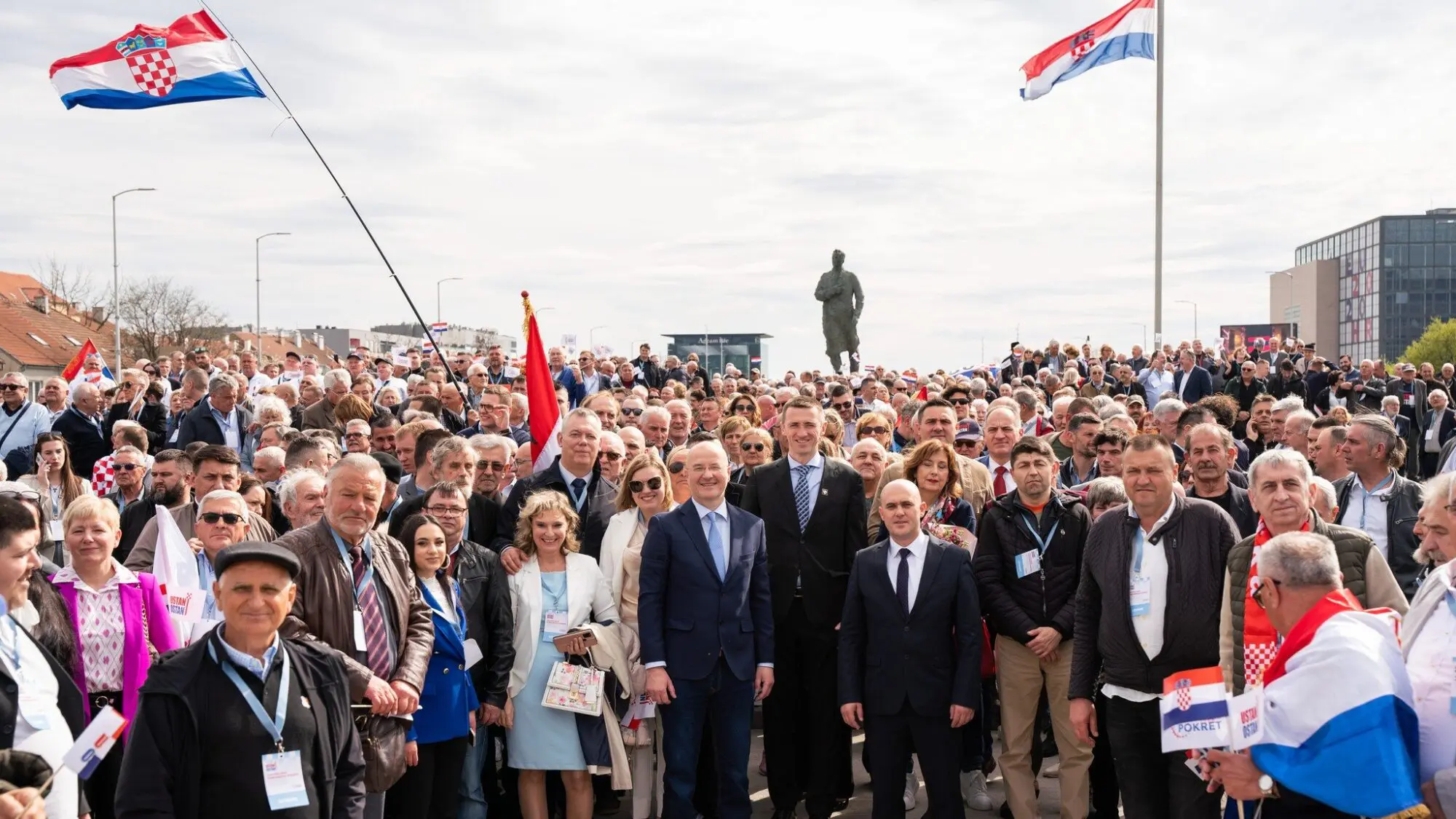
Photo: @DPHrvatska on X, 9 May 2024
Croatia is set to have a new government after a coalition agreement was brokered between the conservative Croatian Democratic Union (HDZ) and the nationalist Homeland Movement (DP) on Thursday afternoon. This comes almost four weeks after elections reduced the parliamentary strength of HDZ as Zagreb’s governing party.
Discussions between the two parties had been taking shape since before April 17th’s general election, which saw the nationalist DP win just under 10% of the vote share.
DP campaigned on a platform of energy and food security, anti-corruption, and migration control. It has secured three ministerial positions in the new Croatian cabinet.
DP was founded by populist TV musician Miroslav Škoro in 2020 and drew on disgruntled centre-right voters believing the HDZ had softened on social issues as it cosied up to the European Union. The party underwent a process of moderation following the ousting of Škoro and has been run by the mayor of the eastern city of Vukovar, Ivan Penava, since 2021.
Upon news of the coalition deal, DP social media described its strategic objectives as ensuring “demographic renewal, the return of young people, village renewal, and self-sufficiency in food production.” T
The entrance of a nationalist right-wing party into government in Zagreb has already left Brussels rattled, with many progressives concerned about the potentially imminent departure of HDZ centre-right leader Andrej Plenković to take up a role at the EU Council from where he could no longer moderate the nationalists.
“We are not interested in the green agenda, and we’re supporting the farmers’ movement” newly elected DP MP Stjepo Bartulica told The European Conservative immediately after the election going on to lament Plenković’s HVD party’s sycophancy towards Brussels.
Bartulica welcomed the coalition agreement in a press conference Thursday saying that combatting lax visa arrangements with Asia and funding a museum about communist terror in Croatia all on the agenda under the new government.
Regarded as an EU success story due to its EU and recent Eurozone membership, post-independence Croatian governance had been defined by the politically dominant HDZ, until the centre-right political party began suffering in recent years from various corruption scandals.
The recent parliamentary election campaign in Croatia was defined by various grift scandals regarding Russian influence and cronyism, with the country’s left-leaning President Zoran Milanović attempting to engineer an anti-HDZ coalition, even courting controversy when he outed a senior centre-right minister as a homosexual.
Following the announcement of the coalition agreement with the centre right, one DP MP has indicated a wish to prevent the “educational colonisation” of the nation’s schools by removing the teaching of “gender ideology.” Many speculate that the Croatian deal could herald major changes, ending the established cordon sanitaire separating the European centre and nationalist right.
Affiliated with the right-wing Identity and Democracy group within the European Parliament— which includes parties such as Marine Le Pen’s Rassemblement National and the Alternative für Deutschland in Germany—the DP is supportive of continued EU and NATO membership for Croatia but has argued that the country’s national sovereignty must be protected. It was critical of Croatia’s embrace of the euro currency.
In a country where migration is becoming a political hot-button topic, DP also campaigns against what it calls “population replacement,” with Croatia seeing an influx of asylum seekers in recent years due to its proximity to migration routes in the Balkans to northern Europe.
